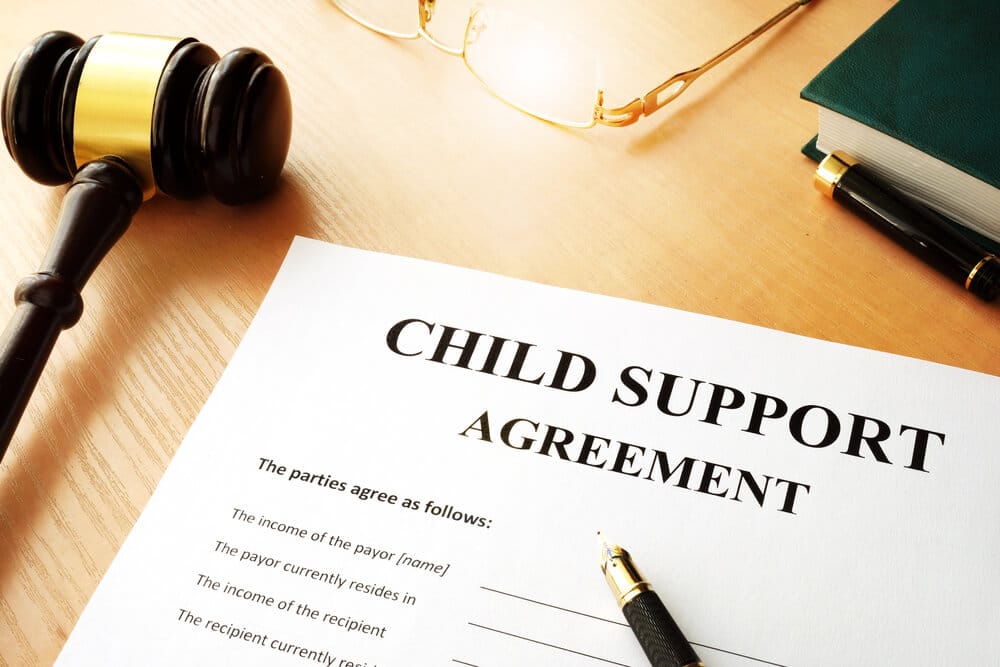Elements Parents Should Consider when Arranging Support for a Child
For Some Divorcing Parents in New Jersey, it is a Good Option to Propose their Own Child Support Agreement through Negotiation Techniques, Instead of Letting the Court Decide for Them.
 When couples divorce, they must follow property division and support laws. The state laws require that parents support their children and that family law courts enforce those laws. However, child custody and support are some of the most contentious battles divorcing spouses go through, so if they agree, it saves them time, money, and grief. But when divorcing parties agree on child support in a marital settlement agreement, they must consider each other’s wishes and obey the law. For example, they can agree to a child support amount, but they must know the legal minimum child support.
When couples divorce, they must follow property division and support laws. The state laws require that parents support their children and that family law courts enforce those laws. However, child custody and support are some of the most contentious battles divorcing spouses go through, so if they agree, it saves them time, money, and grief. But when divorcing parties agree on child support in a marital settlement agreement, they must consider each other’s wishes and obey the law. For example, they can agree to a child support amount, but they must know the legal minimum child support.
What are the Child Support Basic Needs in NJ?
New Jersey Child Support Guidelines (Rule 5:6A) help divorcing parties establish minimum child support numbers by working through the child support schedules, which include a child’s basic needs. Expenses for food, clothing, entertainment, transportation, and other items are on the schedules. Also considered in child support calculations are health insurance costs, up to $250 a year in unreimbursed health care (co-pays and the like), childcare, and other court-approved expenses, for example, education, special needs, and visitation transportation.
What Factors Should be Included in an Amicable Agreement?
Even though the schedules make it easier to calculate support, some variables go into a support calculation, which causes disputes. Parents who cannot agree on child support can leave the decision to a family law judge. However, litigating child support in lengthy documentary evidence and testimony presentations is expensive and time-consuming. Instead, if they agree, the parties may try to resolve their differences through alternative means, such as mediation. So long as they can agree to the essential issues they must decide by law, they can avoid court and its costs. Their agreement must include the child support payment amount, who pays it, how frequently, and how long. And if there are extra considerations, such as private school, daycare, or college, the agreement also includes those decisions.
What is the Purpose of Mediation to Decide Child Support?
Mediation is a great way to save money on attorneys and witness fees the parties would pay in litigation. If the parties cooperate, mediation ends in an agreement without paying attorneys fees. Of course, the parties may pay attorneys to negotiate in mediation or review any deal they reach with the help of a mediator. A mediator is an experienced family lawyer typically who can help the parties resolve differences by explaining the law and reviewing each party’s evidence. Rather than fighting it out in court, both parties use the mediator to draw an agreement.
Who Has the Final Word on the Child Support Agreement?
All that being said, they cannot turn their child support settlement agreement or marital agreement (if they agree on all the divorce issues) into a binding order. Only the court can do that after verifying the agreement is complete, lawful, and adequately provides for the children of the marriage. In coming to a compromise, the parties may agree to more than the minimum child support, and a court may order more than the minimum child support for various reasons. However, a court decides on child support calculations by several factors.
A judge considers both parents’ incomes, the number of children, custodial time with the children (how much each parent spends on the child), the ages of the children, a child’s income (government funds), and other considerations, such as the parties’ other children and support obligations. The laws and the court also establish how long a party pays child support, typically until the child is 19 and out of high school.
Can Parties Use Arbitration to Reach an Agreement?

What Can We Learn from a Previous Case in Longer v. Nace?
Divorcing parties may agree that the child support obligation lasts longer than a child’s 19th birthday, but, as Longer v. Nace established, a party may modify the child support agreement after the child turns 19. In Longer v. Nace, both parties agreed to support their children until their emancipation or until they finish college, whichever is later. But the father petitioned the court to terminate his child support obligation after the youngest child graduated from college. The mother contested his termination request and won in the superior court, and the father appealed. The Appellate Court ruled that the law only obligated the father until the younger turned 19. The New Jersey statute, 2A:17-56.67, obligates a parent to pay child support until a child turns 19 or up to 23 if the court-ordered support continues after 19.
Longer v. Nace confirms that the parties may agree to child support terms, so long as the terms abide by the law. An agreement that exceeds the minimum may change when circumstances change after the final divorce and support judgment. Child support modifications are not easy to get, however. For example, there must be a substantial change in circumstances, such as a party’s job loss or illness.
What are the Benefits of Reaching a Smooth Child Support Agreement?
In sum, agreeing to child support saves time, money, and prolonged battles that wear everyone down, especially children. Tensions run high when parties litigate crucial issues and children suffer additional stress. A divorce is stressful enough for children, and angry child support disputes only worsen their lives. So, even with a compromise that hurts both parties, an agreement is best for all in the long run. And attorneys are critical in helping the parties settle their disputes.
Why is it Important to Have a Family Lawyer by Your Side to Negotiate?

Get an Experienced Family Lawyer to Help with Your Child Support Negotiation
Peter J. Bronzino and our family law attorneys at The Bronzino Law Firm know the ins and outs of child support awards and agreement terms. We thoroughly advocate for our clients in Holmdel, Mantoloking, Little Silver, Lacey, Barnegat, Eatontown, Sea Bright, and throughout Monmouth and Ocean County to reach the agreements that support their children’s futures. Our team understands the value of compromise, but we are fearless when you need to litigate your divorce, custody, or support case in a court of family law. It is important not to go into court or settlement negotiations without the counsel or representation of an excellent family lawyer for your child support dispute, as it can only be detrimental to you in the long run.
Contact our Sea Girt or Brick office at (732) 812-3102 to receive a free and confidential consultation with an experienced family law attorney today. To discuss your specific needs and concerns, you can also complete our online contact form.







